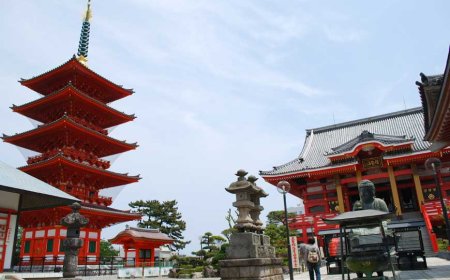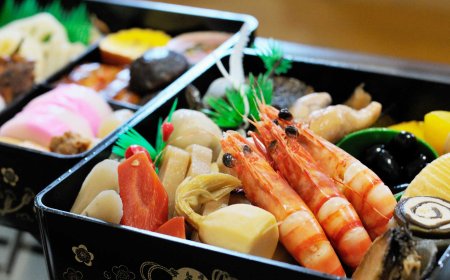Obon in Japan
The yearly holiday in Japan that unites communities and bridges generations while honoring ancestors.
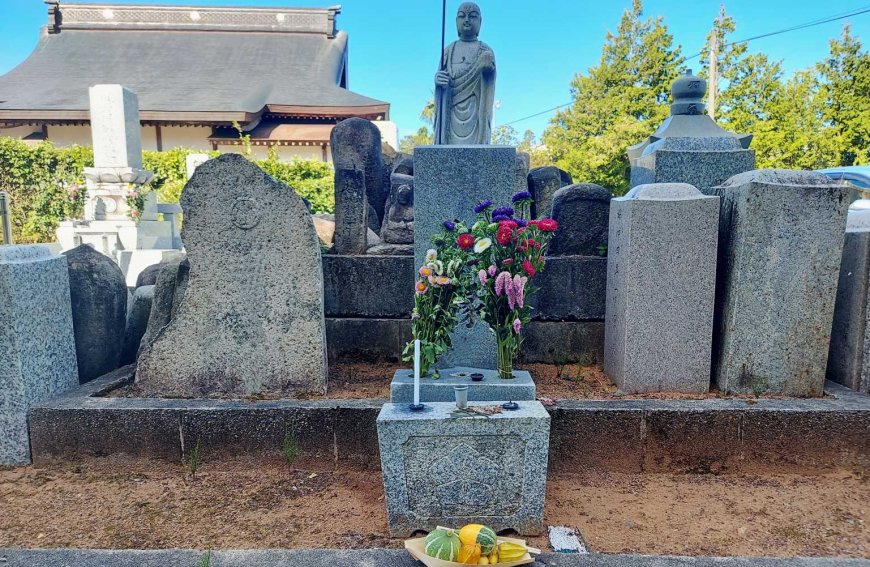
Honoring Ancestors and Celebrating Life During Obon in Japan
Japan is a country renowned for its rich cultural heritage and vibrant festivals that provide a window into the nation's history, values, and traditions. One such festival that encapsulates the essence of Japanese spirituality and familial bonds is Obon. Rooted in Buddhist beliefs, Obon is a unique and heartwarming event that combines reverence for ancestors with festive celebrations, bringing together people from all walks of life to honor the departed and celebrate the circle of life.
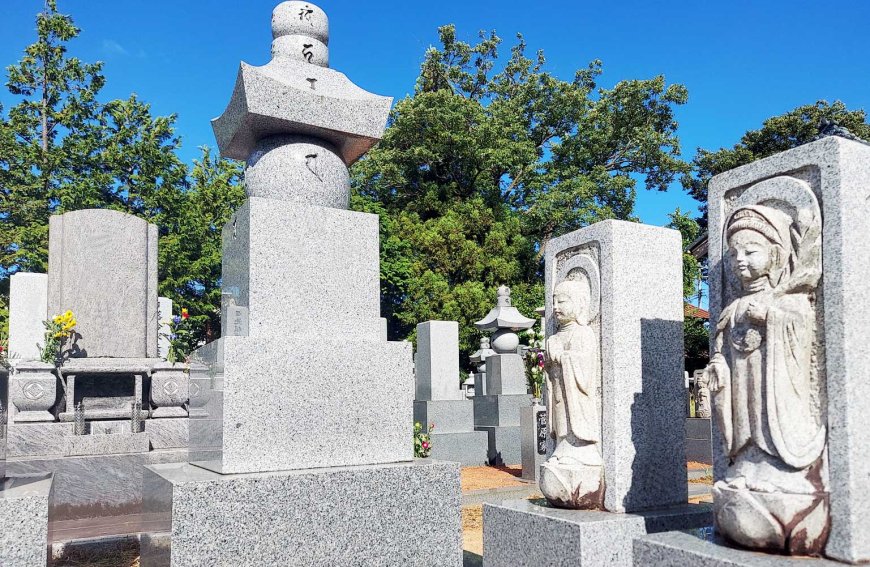 Obon is the time of the year when Japanese express their spirituality and familial bonds
Obon is the time of the year when Japanese express their spirituality and familial bonds
Origins and Significance
Obon is a centuries-old Japanese Buddhist tradition that originated as a way to honor and remember deceased ancestors. The festival's origins can be traced back to Buddhist scriptures and legends, particularly the "Ullambana Sutra," which tells the story of Mokuren, a monk who used his supernatural powers to alleviate his deceased mother's suffering in the realm of hungry ghosts. This act of filial piety inspired the festival's core practices.
The name "Obon" is derived from the Sanskrit word "Ullambana," which means "hanging upside down." It is believed that during Obon, the gates of the afterlife open, allowing spirits to return to the world of the living. The festival typically takes place in mid-August.
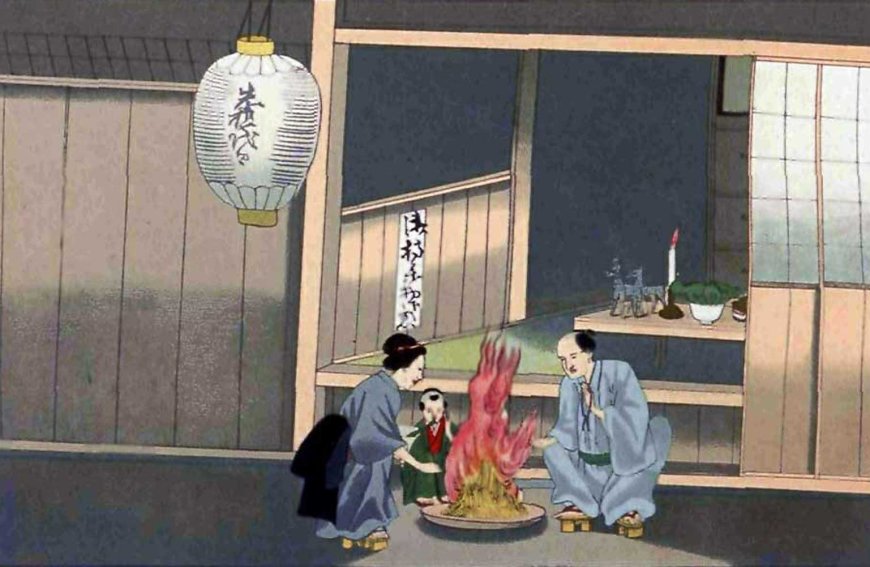 Osurasma, or praying a soul out of purgatory, by J. M. W. Silver, published in London in 1867
Osurasma, or praying a soul out of purgatory, by J. M. W. Silver, published in London in 1867
Rituals and Customs
Obon is an event that combines solemn rituals with joyous celebrations. One of the central customs during Obon is the "Obon Odori" or Bon dance. People gather in their local communities, wearing traditional yukata (light cotton kimono) and dance to rhythmic music, often in a circular formation. The dance is not only a form of entertainment but also a way to welcome and guide the spirits of ancestors as they return to the living world. Each region has its own unique dance styles and songs, showing cultural diversity within Japan.
Another integral aspect of Obon is the preparation of "Obon altars" in homes. Families have small altars adorned with offerings of food, flowers, and incense. These offerings are believed to provide sustenance for the visiting spirits. Lanterns are also placed around the altars or floated on rivers and seas, symbolizing the illumination of the spirits' path and guiding them back to the afterlife at the end of the festival.
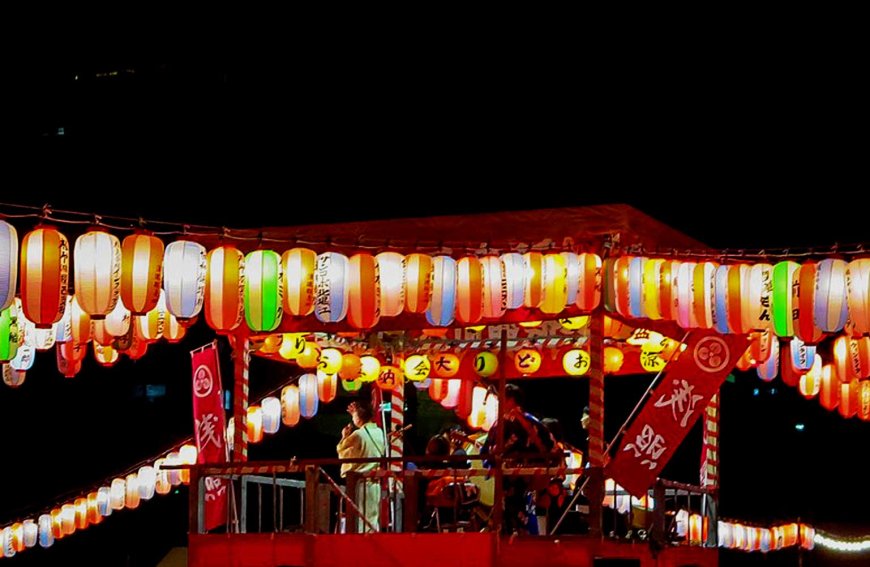 Bon Odori, a style of dancing performed during Obon
Bon Odori, a style of dancing performed during Obon
Homecoming and Reunion
Obon is a time for homecoming and reuniting with family members. Many Japanese people return to their hometowns to participate in the festivities and pay respects to their ancestors. This mass migration often leads to bustling transportation hubs and a palpable sense of excitement in towns and villages across the country.
Obon serves as an emotional and spiritual connection. Families visit the gravesites of their ancestors to clean and decorate the tombstones. This practice, known as "Ohakamairi," demonstrates the enduring bonds between the living and the deceased. It is a deeply personal and reflective moment, allowing individuals to express their gratitude and love for those who have passed away.
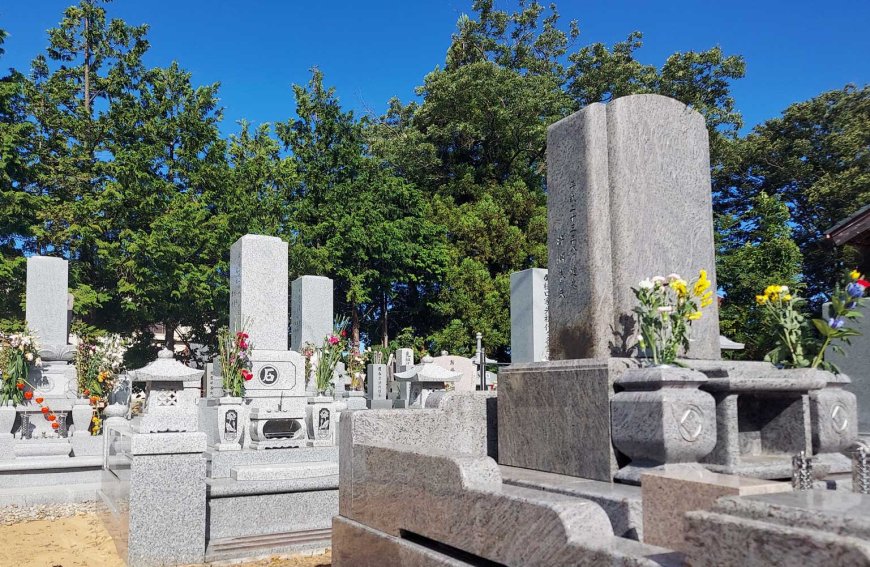 Families visit the gravesites of their ancestors known as "Ohakamairi
Families visit the gravesites of their ancestors known as "Ohakamairi
Modern Relevance and Globalization
In recent years, Obon has taken on new dimensions in response to changing societal dynamics. The festival serves as a bridge between generations, fostering a sense of continuity and heritage among young people who may be disconnected from traditional practices. Many modern urban dwellers use Obon as an opportunity to escape the fast-paced city life and reconnect with their rural roots.
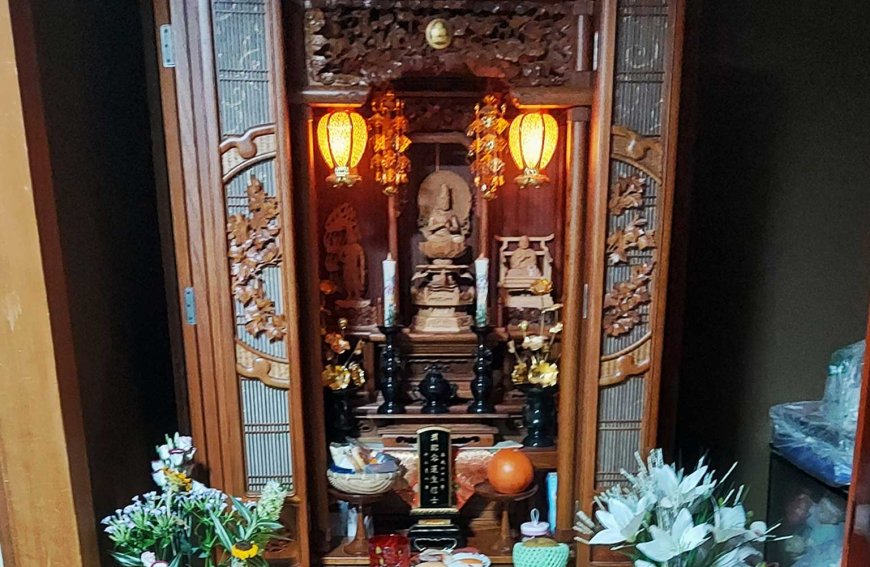 Families have altars adorned with offerings of food, flowers, and incense during Obon
Families have altars adorned with offerings of food, flowers, and incense during Obon
Moreover, Obon has transcended national borders and become a global phenomenon. Japanese communities around the world celebrate Obon, adapting its customs to local contexts while preserving its core principles. These international celebrations not only showcase Japan's cultural influence but also highlight the universality of honoring ancestors and cherishing family bonds.
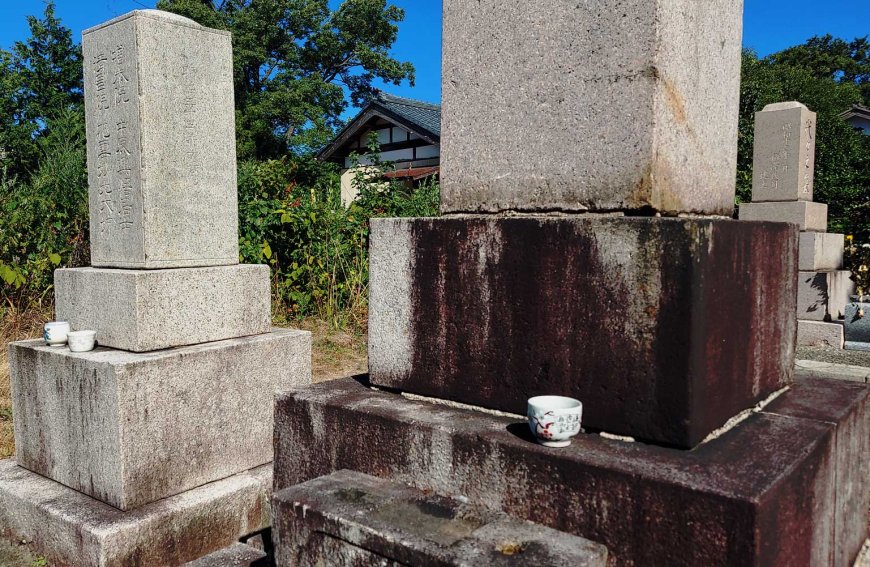 O-choko (cups used for drinking sake) of sake are also placed on tombstones to relieve thirst of the visiting spirits
O-choko (cups used for drinking sake) of sake are also placed on tombstones to relieve thirst of the visiting spirits
Obon is more than just a festival; it is a testament to the enduring connections between generations and the profound significance of remembering and honoring those who came before us. Rooted in Buddhist philosophy and enriched by centuries of tradition, Obon encapsulates the essence of Japanese culture – a harmonious blend of reverence, celebration, and community. As the lanterns are set afloat and the Bon dances fill the air with joyous melodies, Obon reminds us of the beauty in acknowledging the past while embracing the present and future.
Find Cheap Flight Tickets to any Destinations in Japan and the Philippines
Nipino.com is committed to providing you with accurate and genuine content. Let us know your opinion by clicking HERE.



















































